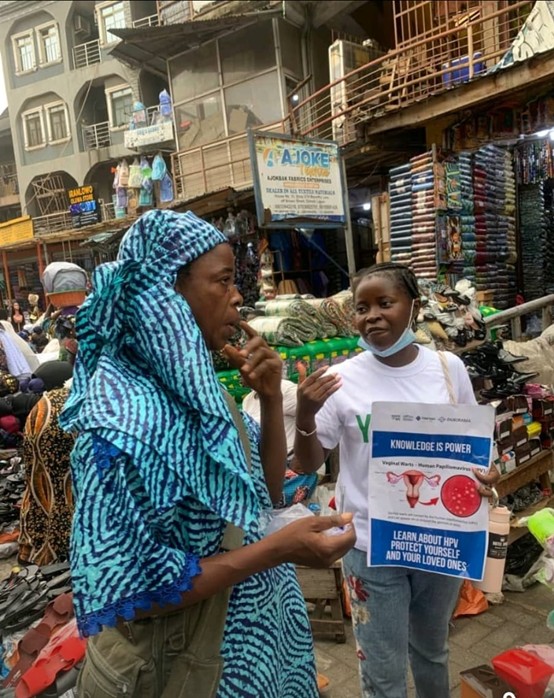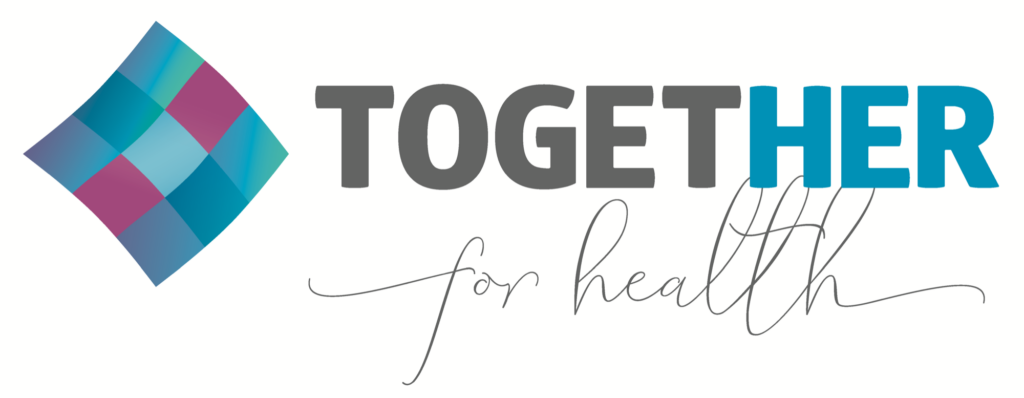Voices TogetHER – Spotlight on Slum and Rural Health Initiative
June 30, 2025
Our Voices TogetHER series puts a focus on the people and perspectives working to make cervical cancer elimination a reality.
This entry features our partners at Slum and Rural Health Initiative (SRHI), one of our 2024-2025 awardees under our Cervical Cancer Grants Program. Their youth-designed and youth-led project is driving increased uptake of HPV vaccination in Lagos State, Nigeria.
SRHI provided us with a great video featuring their Youth for HPV champions. They also enlisted one of those champions – Mfonobong Ebenezer – to blog about her experience as a cervical health advocate in Lagos. Thanks to the efforts of Mfonobong and her peers, more people are able to recognize the importance of early prevention to end cervical cancer.
My journey as an HPV Champion over the last six months has been a truly transformative experience, one marked by learning, impact, and growth. From the very first day of onboarding to the various awareness campaigns across schools, markets, and churches, I have had the privilege of contributing to a cause that directly protects the health and future of adolescent girls.
The onboarding process was a defining moment that shaped my foundation. I received in-depth training on HPV, its link to cervical cancer, and the critical role of early vaccination in prevention. Through this training, I gained not only knowledge but also the tools and confidence to engage diverse audiences. I was equipped with materials, digital content, and real-life communication strategies that prepared me to enter communities with clarity, compassion, and conviction.
School engagement was the first major step in applying what I had learned. I worked closely with school administrators, teachers, and health educators to organize sensitization programs tailored to girls aged 9 to 14. These sessions were more than just lectures, they became safe spaces for students to ask questions, share fears, and receive honest, age-appropriate answers. I also facilitated interactive sessions with parents, addressing myths and helping them understand the long-term benefits of the vaccine for their Children. Witnessing the shift in perception and the growing acceptance of the vaccine in schools was deeply fulfilling.

As I took the campaign beyond the classroom, I ventured into markets hubs of daily activity where information spreads quickly, but where misinformation often thrives. There, I engaged traders, mothers, and caregivers in open conversations about HPV and the importance of vaccination. These moments, though challenging, were incredibly rewarding, as they allowed me to bring health education directly to the heart of the community.
Churches provided yet another powerful platform for awareness. I worked with youth coordinators to incorporate HPV education into religious gatherings. Speaking at women’s fellowships, youth services, and Sunday programs gave me the chance to connect with families in a trusted, faith-based environment. These engagements helped break down barriers of fear and cultural stigma, as the messages were embraced within a spiritual and moral context.
Throughout this journey, I also maintained a steady online presence sharing insights, answering questions, and creating awareness through social media. This digital approach complemented my fieldwork and extended my reach beyond physical limitations.
Being an HPV Champion has been more than a role, it has been a calling. I’ve seen firsthand how knowledge saves lives, how one conversation can inspire action, and how empowered girls become tomorrow’s healthy women. This experience has deepened my commitment to public health advocacy, and I remain dedicated to being a voice for awareness, prevention, and hope.
Photo Credit: Slum and Rural Health Initiative/Jeremiah Ojo
Music by Wavecont: https://protunes.net/
